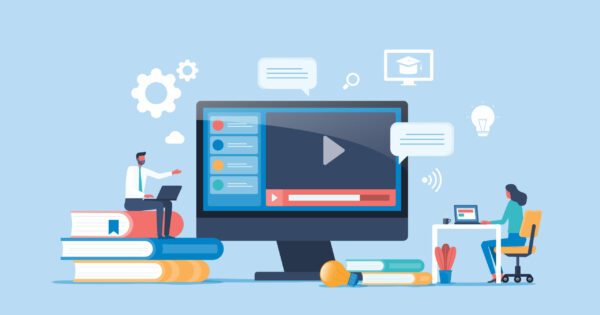Strategy
A business strategy shapes an organization and outlines the goals, methods and learning the business needs to embody in order to see a transformation in their management and development for the future.


How to democratize and sustain learning in a hybrid world
To democratize knowledge and learning throughout organizations, learning and HR leaders must implement shifts at three levels: organizationally, with all managers and with all individuals. Here are the best practices required within each level to make learning in a hybrid world sustainable.

Organize to innovate: Learning’s role in creating an innovation environment
During a crisis or financial downturn, businesses that continue to pursue innovation perform better through the hard times and emerge from the situation stronger than those that shut it down. Yet most CEOs don’t rate their “innovation quotient” very high. It’s not a lack of good ideas. It’s a lack of innovation organization.

L&D is going through an identity crisis — here’s why that’s a good thing
We’re in a new situation, and we need to do something different. Our employees are hungry for growth and purpose amidst the Great Reshuffle, and companies need to respond and act or risk watching their talent walk out the door.

Video: Setting skills-based learning in motion
Chris Ernst, chief learning officer at Workday, shares some of their organization's best practices of their skills-based learning and development strategy.

Getting the sage off the stage: How ubiquity will define the future of learning
The sudden switch to virtual learning in 2020 — at least, for those institutions who weren’t online already — is still sending aftershocks through the world of education and learning and development two years later. As with similar developments in fields from health care to white-collar work, the lines between in-person and remote experiences are continuing to blur much faster than we could have predicted before the pandemic.

Hybrid learning for hybrid jobs: Reskilling for the digital age
Just as “hybrid jobs” have become “jobs,” the old definition of “hybrid learning” that mixes in-person and online experiences is fast becoming just “learning.” It’s incumbent on employers, training providers and learners themselves to ensure that as we navigate that shift, we’re building a more meaningful and productive learning experience in the process.

Resetting the learning function to a virtual-first approach
Just as some companies have adopted a “‘remote-first”’ employment model, learning teams need to move to a “‘virtual-first”’ approach to design to provide the level of predictability needed to produce high-quality work for learners and the business.

Video: Championing Black female leaders before they enter the workplace
Jamila Trimuel, founder and CEO of Ladies of Virtue, a mentoring program for Black girls, speaks about supporting grassroots mentoring programs and the importance of mentorship and community engagement to fortify strong Black female leaders.

Earn your seat at the table: Turning your L&D department into a performance department
If you desire to be the trusted strategic partner that contributes to the revenue growth and success of your organization without breaking out into a sweat, then you’ll need to have a plan, the proof and a performance department that you can execute.

The $8.5 trillion skills gap: How learning leaders must address it through talent and tech
The largely reported 85-million-person talent deficit by 2030 highlights the role that future human talent will play alongside technology that replaces bad jobs and helps upskill and reskill workers in the future of work.

The $8.5 trillion skills gap: How learning leaders must address it through talent and tech
The largely reported 85-million-person talent deficit by 2030 highlights the role that future human talent will play alongside technology that replaces bad jobs and helps upskill and reskill workers in the future of work.

Hitting the reset button on manager development
Organizations need to have managers that people want to work for. This requires a different approach to developing managers.

Want to foster a culture of learning? Adopt an organizational skills language
To deliver on the promise of learning as a competitive advantage, organizations must inspire learners to see why specific skills are important, intentionally teach those skills, craft opportunities for collaborative skill use and track skill growth. Intentionally designing a skills language and seeding it within your community creates a self-sustaining engine of individual and organizational growth.

Why companies need to retrain to retain staff amidst the great reshuffle
When it comes to rapidly changing industries, professional development isn’t just a nice way to attract and retain talent, it’s a necessity.

Beyond traditional learning programs
To prepare for Industry 4.0 and a diverse, shrinking workforce, we need to open the door of meaningful learning to everyone.